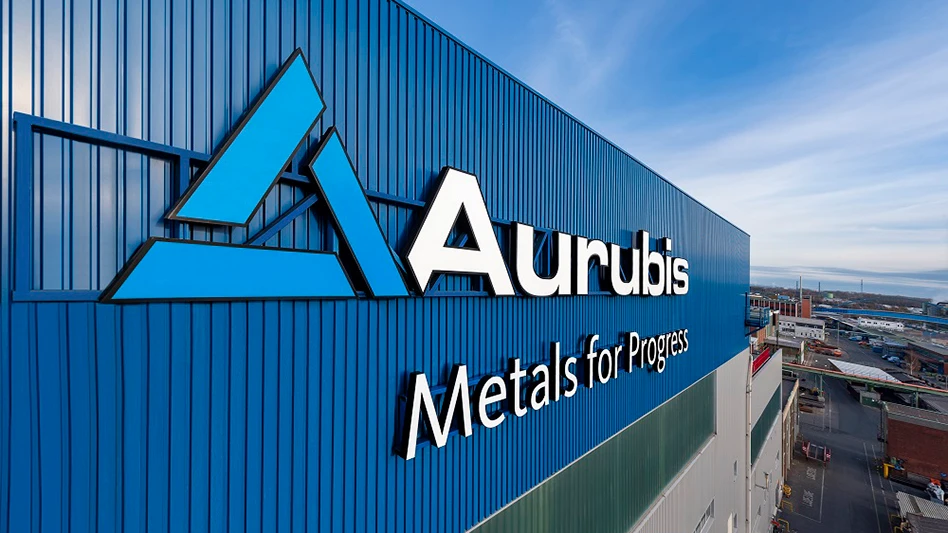
Photo courtesy of Aurubis AG
The CEO of Germany-based metals producer Aurubis AG said he foresees his company making future investments in the downstream copper value chain in the United States in addition to the sizable investment it already has made into a new facility in Richmond, Georgia.
At a mid-June Capital Markets Day event, the company, which predominantly makes copper, said its investments in its global smelter network will ensure the company’s continued sustainable and profitable growth in the future.
“Our Aurubis smelter network is already the most sustainable and efficient in the world today,” Harings said. “We are the cornerstone of the European circular economy [and] we will continue to strengthen our leading role through targeted, strategic investments, like the construction of a multimetal recycling plant in the U.S. state of Georgia; expanding the tankhouse at our Bulgarian Pirdop site; and the Complex Recycling Hamburg project in Germany.
“The U.S. market in particular holds additional potential for strategic growth. We see Aurubis Richmond as the first step along the path to becoming a fully integrated copper producer that uses recycling materials in North America as well. Future investments in the downstream copper value chain would put us in a position to further strengthen the circular economy in the U.S.”
Aurubis calculated it will have invested $1.3 billion globally in eight projects by the end of its 2025-2026 fiscal year. The firm said it primarily is using its own resources to fund these investments and adds it has a very solid balance sheet structure to fall back on.
In addition to the eight ongoing projects, the company’s current medium-term planning includes potential of another $300 million or so that could be implemented by the end of the current decade. Aurubis said it has the financial latitude to spend up to $1.94 billion for additional acquisitions and investments.
One potential target is battery recycling. “Aurubis has achieved very compelling results from a pilot plant for battery recycling—an attractive market that offers high potential for growth in both the medium and the long term,” the company stated as part of its Capital Markets Day presentation.
The company predicted the availability of black mass (metals-intensive mixed material made from shredded batteries) will rapidly rise as of 2028, in particular due to an increase in the number of used batteries available from electric vehicles (EVs), and not just in Europe. Metals contained in black mass include nickel, lithium and cobalt.
Such a trend, the firm said, “would make entering the commercial market attractive.” Aurubis said its next step is to start commercial activities in battery recycling with a demonstration plant in 2024, and the firm is formulating site selection criteria for a plant with industrial scale production to be started in the 2026-2027 fiscal year.
Latest from Recycling Today
- BMW Group, Encory launch 'direct recycling’ of batteries
- Loom Carbon, RTI International partner to scale textile recycling technology
- Goodwill Industries of West Michigan, American Glass Mosaics partner to divert glass from landfill
- CARI forms federal advocacy partnership
- Monthly packaging papers shipments down in November
- STEEL Act aims to enhance trade enforcement to prevent dumping of steel in the US
- San Francisco schools introduce compostable lunch trays
- Aduro graduates from Shell GameChanger program





